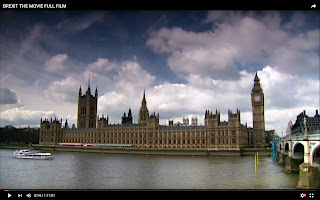The use of a motion picture to tell a story was one of the most compelling methods of communication developed during the 20th century.
But it wasn't just Disney that utilised the evolving communication opportunity to engage with cinema audiences. Politicians recognised the potential of the movies to appeal to voters in a more subtle way than advertising via posters and billboards could. Advertising needs to focus on a single idea, communicated via a clever headline, and/or an arresting image and be associated with the branding of the political party. The written word, a sound radio broadcast and movies provided the voters with the rationale, the back story and validation of the 'call to action' to vote. In the politicians' hands the movie became propaganda and none more versed in the black arts than Dr Joseph Goebbels who in 1933 was appointed Germany's Minister for Public Enlightenment and Propaganda. Within 3 years of his appointment his ministry was financing three quarters of all German feature films and in due course, via censorship and legislation soon controlled the film industry along with radio and theatre. The 'golden age' of cinema was during the 1940s for the British public, but as television grew in popularity during the 1950s cinema audiences declined just as cinema had previously sounded the death knell of the music hall.
Today the Internet is making inroads through sites such a YouTube and in the British Referendum debate the campaigners are using the medium to present the complex issues that will be decided in a months time by a single vote - to go or to stay.
Check out the inormational film - Brexit the Movie.


No comments:
Post a Comment